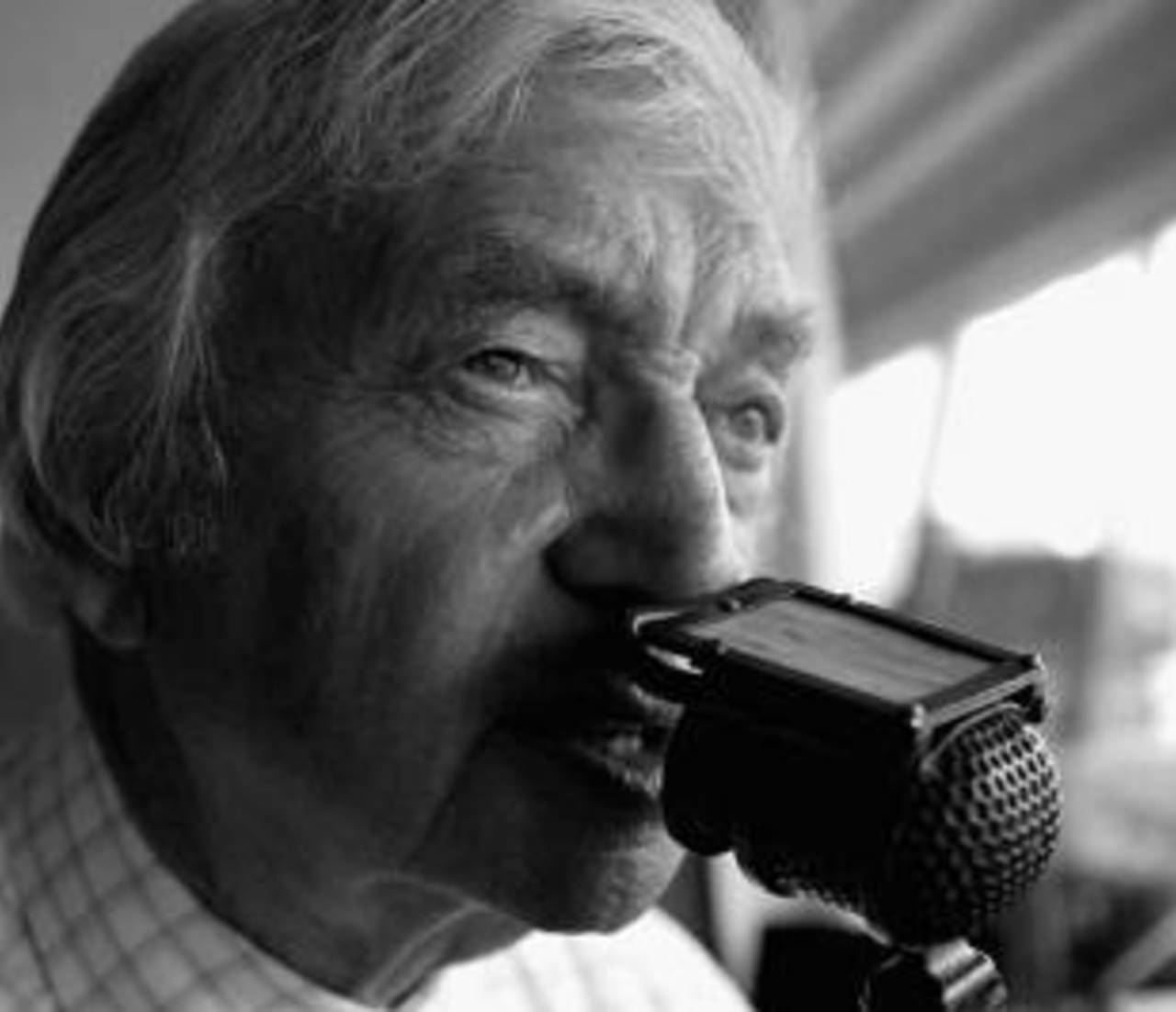It's working. Two weeks of the second season of the Indian Premier League and it's
finally been drummed into me who the damn sponsors are. Thanks. Thanks a lot. Now GO AWAY!
Actually, had I money to invest, I'd be wondering why DLF, presently being squeezed by slumping property values and a share price a quarter of its peak, and Citigroup, insolvent but for Barack Obama's indulgence, were wasting shareholders' funds on staking sixes and endowing so-called "success". As I don't, I'll simply vary that old Bob Hope gag concerning the night he went to a boxing title fight and a game of ice hockey broke out: the IPL is fast degenerating into a series of three-hour advertisements through which are sometimes discernible glimmers of cricket.
Cricket, of course, has much to thank television for. How much richer is our appreciation of a Shane Warne legbreak or a Kevin Pietersen cover-drive for the luxury of studying it, frozen in time; when we can hover over each detail of the harmonious human mechanism. But either Lalit Modi is pumping nitrous oxide into the commentary box, or the IPL is bearing out JK Galbraith's observation that television allows for persuasion with no minimum standard of literacy or intelligence.
One expects a certain degree of phoniness from Sunil Gavaskar and Ravi Shastri, who as IPL governing council members are busy getting high on their own supply. But the rest of Modi's fawning courtiers, even super-smooth Mark Nicholas and pawky Jeremy Coney, have been reduced to carnival barkers, whether greeting a full toss slogged for six like the news of VE Day, pretending that the tactical time-out is something other than a sneaky commercial trick, or, above all, hawking the sponsors like Jim Cramer used to ramp shares on Mad Money. Could Citigroup be scattering moments of success for its own morale? Can it be that somewhere in the fine print of DLF's sponsorship contract is prescribed a specified number of long-hops and full-tosses per hour, to guarantee a minimum of "maximums"? The result is that whatever the game looks like, it sounds as forced as the canned laughter in an American sitcom.
Some of the artificiality of season two has simply been made more obvious by the
inclement weather, diminishing novelty value, fewer thrills and more spills, which has left the appointed interpreters straining for effect. But that can't explain everything. There was plenty of glitz and hype in the first season of IPL, but the excitement of the fans was stunningly, thrillingly real. Away from India, the IPL lacks that authentication. It is a distant and diluted re-run, with contrivances to redeem its deficiencies.
Even when it's right, they somehow get it wrong, as at the end of Rajasthan Royals v Kolkata Knight Riders on Thursday, when the best game of the tournament and the best result in cricket was capped by a climax as fake as Sally's when she met Harry. Are the commentators, then, straining to act as proxies for their main audience back in India? If so, it seems a doomed enterprise.
Because the commentators' clueless desperation now feels as though it is working against the IPL. When something great happens, they have nowhere to go, no upper register left to use. When 20 off 10 balls exhausts your superlatives, how do you describe a hundred off 50 balls? When a young Indian domestic player getting away a couple of beefy blows is so thrilling, what tone do you adopt for Sachin Tendulkar? As Gilbert and Sullivan put it in The Gondoliers, "When everyone is somebodee / Then no one's anybody"
When something great happens, the commentators have nowhere to go, no upper register left to use. When a young Indian domestic player getting away a couple of beefy blows is so thrilling, what tone do you adopt for Tendulkar?
A further complication is Twenty20's inherent unpredictability, its mixing of the sublime and the ridiculous. When commentators hype a batsman up for consecutive boundaries only to watch him perish to an imbecile smear, or praise a bowler to the skies for four dot-balls, then see him smacked into orbit twice while closing the over out, they subtly erode their own authority - such authority as they had, anyway.
The television commentator has always been sensitively placed. His network has paid good money to broadcast, and thus has an interest in the game being perceived as representing high-quality excitement - even when it is not. Richie Benaud didn't become His Richieness by saying: "This is a boring game between two mediocre teams and represents an ideal opportunity for you to go mow the lawn."
With Twenty20, however, there is the added imperative of promoting a format in which exorbitant sums and giddying hopes have been invested. The consumer has not just to be sold the game he is watching, but the Twenty20 concept in general; persuaded that he is witness not just to a contest of teams, but a contest of genres, with Modi responsible for the most exciting breakthrough since penicillin. It forces the commentator even further from the ideal perspective of disinterested critic, bringing to bear a weight of experience and a talent for observation; it reduces him to sideshow huckster, flogging the game like a patent medicine from the back of his covered wagon.
Nor am I sure it ultimately does the sponsors much good either. There are two sides to brand recognition: one where the sponsor's name conjures up warm and positive associations; another where it stirs irritation and objection, as a result, perhaps, of incessant, cloying, annoying repetition. So, yes, we now know which sponsors to find, and also, if so moved, those to avoid.
Gideon Haigh is a cricket historian and writer
